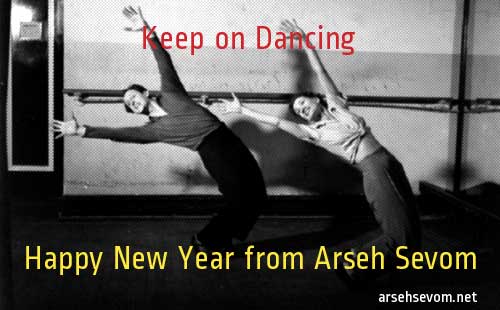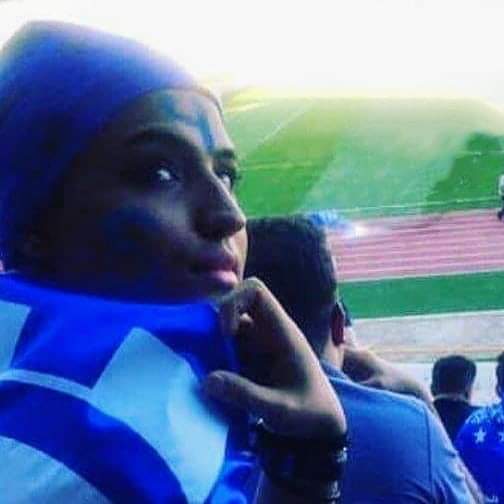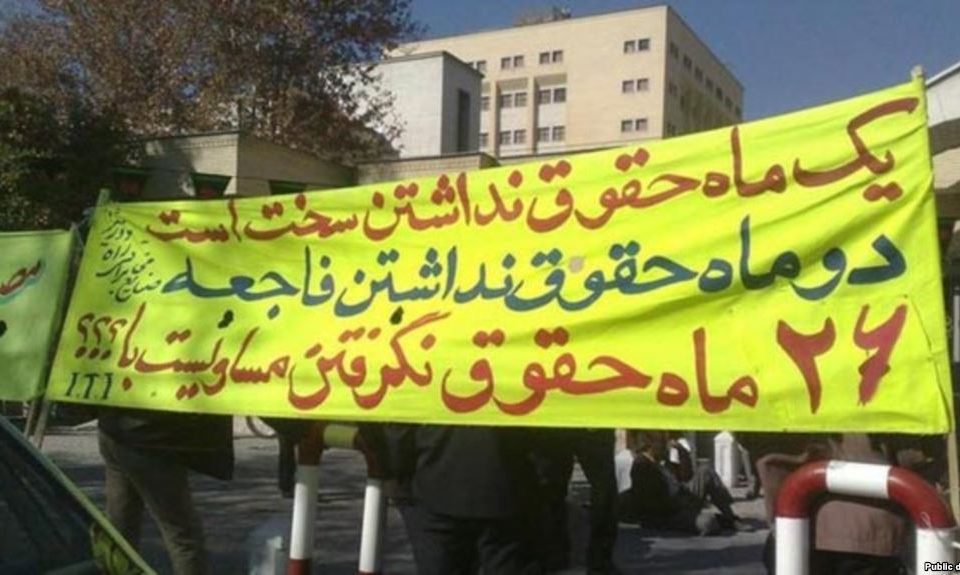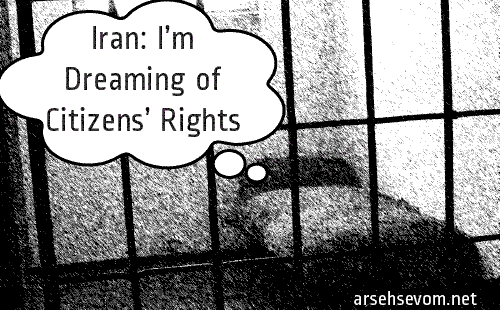
#Iran: I’m Dreaming of Citizens’ Rights
December 26, 2013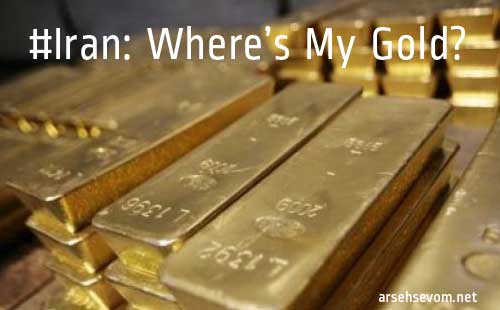
#Iran — Where’s My Gold?
January 14, 2014
They say that an optimist is someone who knows that one step forward and two steps back is a dance, not a defeat. In 2013, those acting for a vibrant civil society in Iran wore out their dancing shoes.
At the end of 2012, we were relieved to hear that imprisoned human rights lawyer Nasrin Sotoudeh had ended a hunger strike that nearly killed her. At the end of 2013, we are shocked by the ransacking of her home.
The administration of Mahmoud Ahmadinejad came to an end. There were high expectations for the new administration of Hassan Rouhani. Many called for the release of all prisoners of conscience and an end to the house arrest of Mehdi Karoubi, Mir Hossein Mousavi, and Zahra Rahnavard.
Pollution in Iran’s cities hit record highs in 2013. “Just leaving the house makes my chest hurt,” a Tehran resident told Arseh Sevom. Three Iranian cities were among the world’s ten most polluted cities. Ahwaz was the most polluted city in the world in 2013.
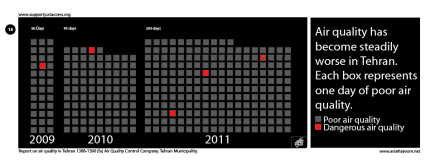
For more information, view the entire info graphic on Just Access
Iran continued breaking records, executing more people in 2013 than in previous years. UN Special Rapporteur for Human rights in Iran Ahmad Shaheed condemned the high rate of executions. Public executions continued. Arseh Sevom was one of thirty organizations calling for a halt to the execution of five Ahwazi Arab cultural activists.
Activists in Iran successfully prevented a law that would have prevented all women 40 and under from traveling without the permission of a husband, father, or male guardian.

After nearly two years of revision, the NGO bill was up for debate again before the Parliament. It seems most of the changes to the suffocating bill were cosmetic rather than constructive. If passed, it would harm civil society significantly.
Elections — whether “free” or “engineered” – were a hot topic in 2013, prompting PhD candidate Ammar Maleki to make a plea for “safe elections:”
“Those who want to guarantee free elections and are playing the election game, should answer this question: what happened to those who paid a very high price for asking ‘where is my vote?’”
Meanwhile. the increasing interference of the Revolutionary Guards in Iran’s elections was documented by Mohammad Reza Sardari.
For an update on Iran’s electoral season, check out Arseh Sevom’s prezo.
Hassan Rouhani — whose campaign rallies featured crowds chanting for the release of political prisoners — was elected president in the first round. This prompted celebration and optimism among many in Iran. The grassroots group Havaar wrote on their Facebook page:
“Hassan Rouhani has officially won the election in Iran with 18 million and 600 thousand votes. Many people are celebrating in the streets at this very moment. A long and unpredictable path is ahead but there is still hope.”
Sanctions took their toll on Iranian society. More than 50 political prisoners in Iran sent a letter to President Obama asking for an end to sanctions that acted as a punishment on Iranian society as a whole.
Restrictions on international banking combined with poor planning and mismanagement made it nearly impossible for non-sanctioned items to make their way into the country. Medications were in short supply.
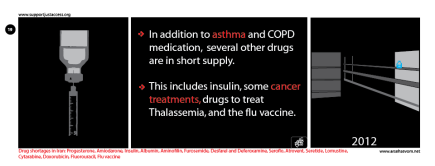
Insulin is among the medications in short supply in Iran. The complete infographic is available on Just Access
Arseh Sevom, The International Campaign for Human Rights, and United for Iran launched Just Access, a campaign to open a payment channel for non-sanctioned items such as medication.
Nuclear negotiations was the biggest story of the year for many. Hopes for an easing of economic sanctions and engagement with the West were high among many in Iran. When news of a deal was announced, twitter user Reza Ghazinouri tweeted:
“Take your boots off. Our generation will not go to war.” [fa]
At Arseh Sevom, we’ll be taking off our boots and stocking up on dancing shoes again this year. We invite our readers to do the same.


